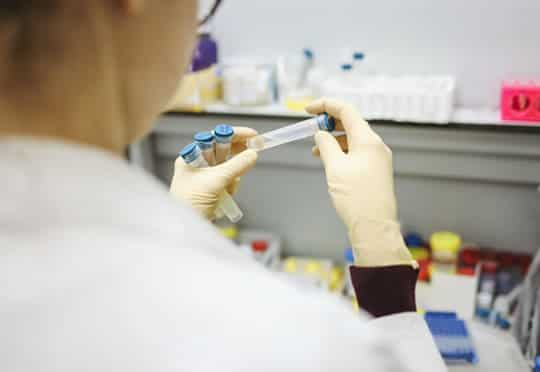People with this blood type are less vulnerable to coronavirus infection.
Human ABO blood groups could possibly have some effect on susceptibility to COVID-19 and its severity.
Studies suggest that while people with blood types A and AB may be more likely to develop severe COVID, individuals with blood type O are less likely to contract an infection.
Those with blood type O appear to be less vulnerable to the virus and so they have the lowest risk of developing serious illness, followed by hospitalization and death.
While the coronavirus pandemic goes on, scientists are trying to determine the risk factors and find ways to minimize them.
Blood type appears to be a potential risk factor associated with COVID and the severity of the illness in infected patients.
A Danish study compared data from nearly half a million people tested for COVID with more than two million non-tested individuals (control group).
The research team found that more people with A, AB, and B blood types tested positive for coronavirus but fewer people with blood type O tested positive.
The scientific evidence suggests that blood type O has the ability to protect its owner from coronavirus infection.
Blood group O has no antigens but contains anti-A and anti-B antibodies that are able to neutralize the virus when entering human cells.
Dr Torben Barington, the study’s senior author, said:
“It is very important to consider the proper control group because blood type prevalence may vary considerably in different ethnic groups and different countries.
We have the advantage of a strong control group — Denmark is a small, ethnically homogenous country with a public health system and a central registry for lab data — so our control is population-based, giving our findings a strong foundation.”
Another study collected data on 95 severely ill patients hospitalized with COVID.
They found that mechanical ventilation was needed for a high number of COVID patients with blood group A or AB compared to blood groups O or B patients.
Overall, critically ill COVID patients with blood group A or AB were more likely to face lung injury, liver dysfunction, kidney failure, and have extended treatment in the intensive care unit (ICU).
According to a study by Dr Sean Stowell and colleagues, people with blood type A are more likely to test positive for the novel coronavirus.
This is because the coronavirus prefers blood group A antigens that are on the respiratory cells.
The studies were published in the journal Blood Advances (Hoiland et al., 2020 & Barnkob et al., 2020).

